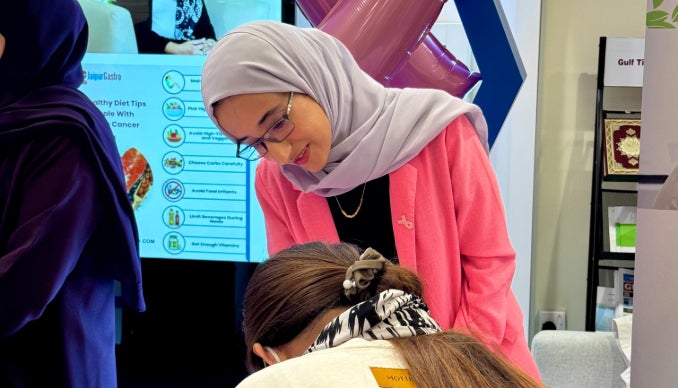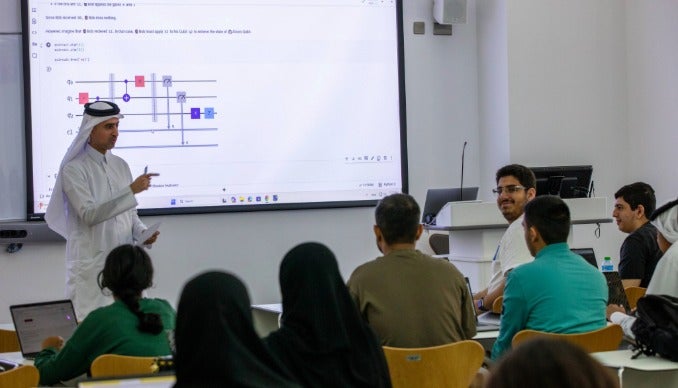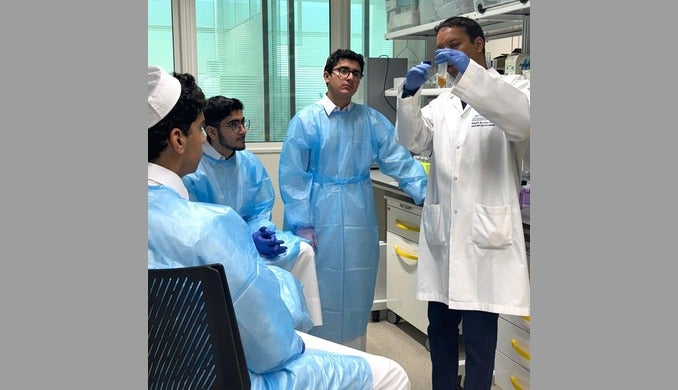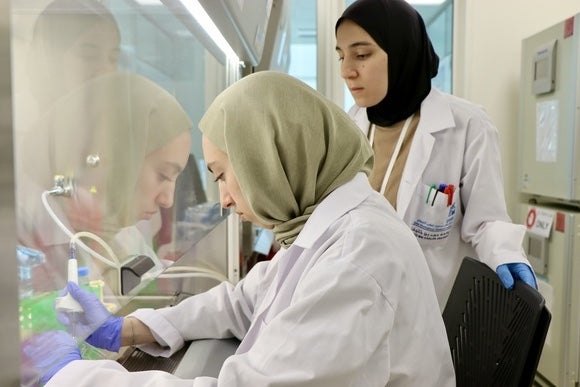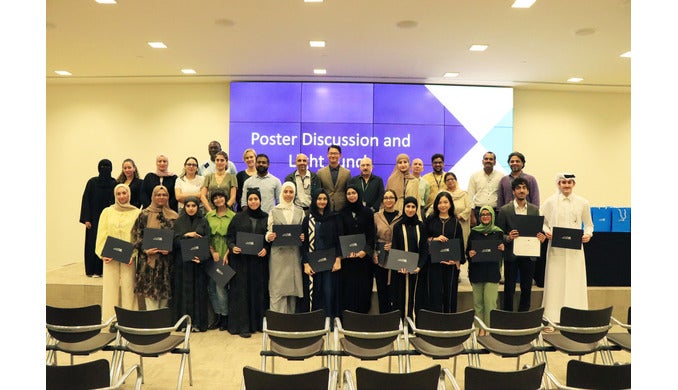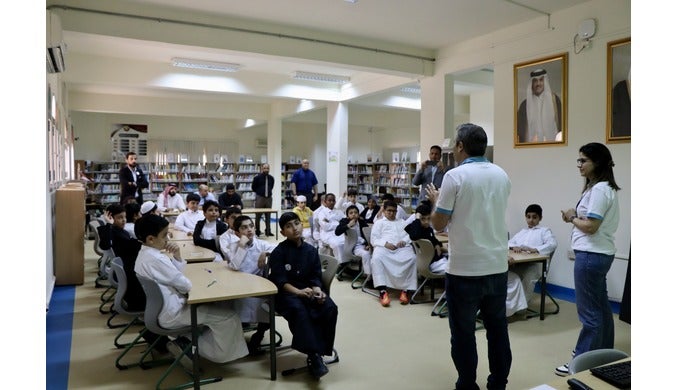Cutting-edge platforms will support protein-based research activities toward detecting and analyzing diseases
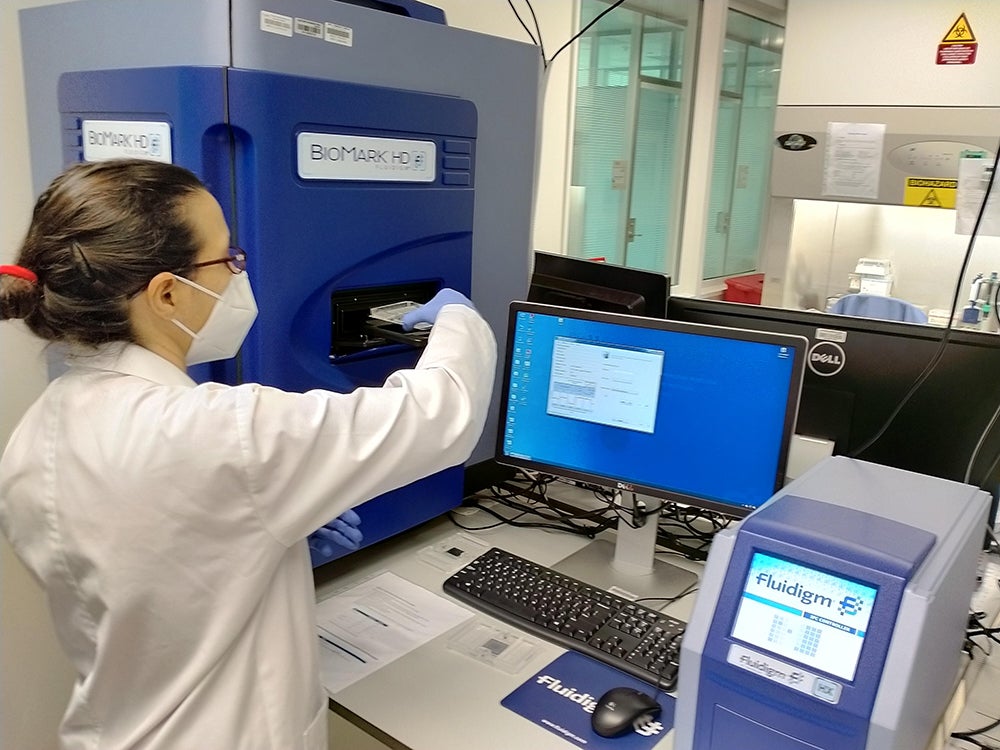
Qatar Biomedical Research Institute (QBRI) at Hamad Bin Khalifa University (HBKU) is set to benefit from technology transfers with two leading companies in the field of proteomics, furthering its mission to innovate and transform healthcare. Both arrangements reflect that the proteomics core represents one of the Institute’s main research core facilities and enabling platforms.
Through the terms and conditions of the agreements, QBRI is working with Singapore-based Sengenics and Sweden’s Olink Proteomics and established both these certified proteomics core technology platforms at its research facilities. The platforms expand QBRI analytical capabilities and assist researchers engaged in protein-based activities by providing access to high throughput affinity-based proteomics assays.
These state-of-the-art platforms are used for research purposes to drive the discovery of novel biomarkers at early and late stages of disease progression, which can serve as tools for prognostics and diagnostics. The ability of proteomics data sets to provide insight into disease progression makes it crucial for precision medicine approaches where diagnostic, therapeutic and monitoring treatments are tailored to specific patients through integrating research findings into clinical data. QBRI aims to support its research programs through its analytical proteomics platforms particularly in the field of precision medicine. This will pertain to several diseases and disorders such as autism spectrum disorder and other neurological diseases, diabetes and cancer. A knowledge base will be built to better guide individualized patient care for prevention, diagnosis and disease treatment, leading to better management of diseases in the Qatari population.
In addition to pure analytical capabilities, the proteomics core facility also offers additional services; including technological consultation, custom sample preparation and data analytical solutions. These services like other QBRI core services are available to both local and international stakeholders.
QBRI’s agreement with Olink involves certified usage of its Protein Biomarker Discovery technology, which includes 13 different panels, each focused on a specific area of disease or key biological process. Olink’s groundbreaking panels for precision proteomics help scientists make research decisions more quickly and confidently through robust, multiplex biomarker analysis. In addition, the high-quality multiplex immunoassay panels help bring new insights into disease processes, improve disease detection, and contribute to a better understanding of biology.
QBRI has also signed a strategic technology transfer agreement with Sengenics that gives access to its patented KREXTM protein array technology for autoantibody biomarker discovery, based on the detection and identification of novel autoantibodies in plasma or serum.
The KREXTM technology enables a better understanding of disease pathology. KREXTM can also be used to identify autoantibody biomarkers for early diagnosis of cancer, autoimmune, neurodegenerative or infectious diseases, which can guide better treatment and deliver upon the vision of precision medicine.
The agreement with Sengenics entails QBRI serving as the sole service provider of Sengenics services in Qatar, with exclusive licensing rights for the Middle East and North Africa region, as well as India, Pakistan and Turkey.
Commenting on both partnerships, Dr. Omar El-Agnaf, Executive Director, QBRI, said: “It’s an honor to be working closely with two leaders in proteomics technologies. Their platforms will not only ensure that QBRI is at the forefront of relevant research activities but also enhance its ability to detect, diagnose and analyze the progression of diseases, and contribute to development of precision medicine in Qatar.
Dr. Houari Abdesselem, Laboratory Manager, QBRI, said: “We have established the agreements, built the platforms’ facilities and are now working to make them operational for exciting research activities. We’re determined to make full use of both platforms’ analytical and experimental capabilities. Together, these services will benefit our determination to better prevent and treat diseases affecting the people of Qatar and populations further afield.”
The proteomics core play an important role in launching QBRI interdisciplinary research programs, it complements the other QBRI core facilities and enables QBRI to conduct cross disciplinary research which improves understanding of links between different diseases.
QBRI houses seven state-of-the-art core facilities that actively support scientific research by providing advanced research technologies and services to the research community in Qatar and worldwide. The core facilities include stem cells, genomics, proteomics, structural biology, flow cytometry, advanced microscopy and imaging, in addition to clinical research cores. The facilities are located in the same building as QBRI’s research centers and form an integral element of QBRI’s ambitious goals in driving visionary and innovative research in Qatar. For more information about QBRI and its research centers and core facilities, please visit qbri.hbku.edu.qa
Related News





